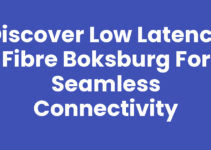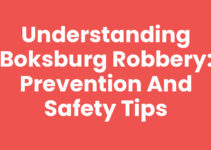Light pollution is a growing concern in urban areas around the world, and Boksburg is no exception. This phenomenon not only obscures our view of the stars but also impacts wildlife, human health, and the environment. In this blog post, we will delve into what light pollution is, its causes, effects, and most importantly, the actionable steps residents of Boksburg can take to mitigate its impact.
What is Light Pollution in Boksburg?
Light pollution refers to the excessive or misdirected artificial light that brightens the night sky. There are several types of light pollution, including:
- Skyglow: The bright halo that appears over populated areas, obscuring the visibility of stars.
- Light trespass: Unwanted or intrusive light that crosses property boundaries.
- Glare: Excess brightness that causes visual discomfort.
- Clutter: A concentration of brightly lit objects in an area, which can distract and confuse those trying to navigate.
In Boksburg, factors contributing to light pollution include urban development, street lighting, billboard advertisements, and industrial activities. As more buildings and infrastructure rise, the balance of natural darkness is increasingly disrupted.
See Also: Perfect One Day Itinerary for Boksburg: Explore with Ease
Light Pollution in Boksburg: A Step-by-Step Guide to Combat It
Addressing light pollution in Boksburg requires collective efforts from individuals, local businesses, and the government. Here’s how residents can contribute:
- Conduct an assessment: Identify the sources of light pollution in your area by surveying your outdoor lighting. Make note of excessively bright lights, poorly focused fixtures, and unnecessary light during late hours.
- Utilize dark-sky friendly fixtures: Opt for outdoor lighting designs that minimize glare and light trespass, such as fixtures that are downcast or shielded. These fixtures direct light where it’s needed.
- Reduce unnecessary lighting: Turn off lights during the late-night hours when they serve no functional purpose. Encourage local establishments to adopt similar practices and educate your neighbors.
- Advocate for local regulations: Engage with local council members to discuss potential amendments to lighting ordinances. Propose that new developments must comply with dark-sky protocols.
- Plant trees and vegetation: Trees can act as natural barriers to reduce light trespass. Strategically planting them around properties can enhance privacy while minimizing the effects of artificial light.
- Educate the community: Host workshops or community meetings focused on the impact of light pollution. Share information on how it affects health, wildlife, and stargazing.
- Join or form local groups: Collaborate with organizations that advocate for dark-sky initiatives. Working together amplifies your combined influence on reducing light pollution.
- Monitor progress: Track changes in your local night sky over time. Use apps or websites that allow for stargazing and light pollution measurement. This data can help in adjusting strategies as required.
By implementing these steps, the residents of Boksburg can play a critical role in reducing light pollution and reclaiming their night sky.
Check This: Discover the Benefits of the Automobile Association Boksburg
The Benefits of Reducing Light Pollution
Taking action against light pollution offers several significant benefits:
- Improved health: Reducing exposure to artificial light at night can help regulate sleep patterns, increase melatonin production, and improve overall health.
- Enhanced visibility of stars: A clearer night sky allows for better stargazing and promotes engagement with astronomy and nature.
- Wildlife preservation: Many species rely on natural light patterns for navigation and mating. Less artificial light can help maintain biodiversity in the ecosystems around Boksburg.
- Energy savings: Using efficient lighting solutions and reducing unnecessary nighttime illumination can lower energy consumption, leading to lower utility bills and reduced carbon footprint.
- Increased community cohesion: When residents come together to combat light pollution, it fosters a sense of community and cultivates shared goals, strengthening neighborhood ties.
Overall, addressing light pollution is not merely an aesthetic issue; it encompasses broad implications for public health and environmental sustainability.
Recommended Guide: Experience the Best of Lindsay Saker Boksburg Today
Conclusion
Light pollution in Boksburg poses challenges not only to our stargazing pursuits but also affects our health and the local ecosystem. By understanding the causes and ramifications of this issue, as well as taking proactive steps to minimize its effects, residents can significantly enhance the nightscape of their community. We all have the power to make a difference—let’s work together to light up our nights responsibly and maintain the beauty of the stars.
Related Guide: Get Picture Framing While You Wait in Boksburg Today!
Frequently Asked Questions
What are the main sources of light pollution in Boksburg?
The primary sources include streetlights, commercial signage, and residential outdoor lighting.
How does light pollution affect health?
Excessive artificial light can disrupt sleep patterns and lead to health issues like insomnia.
Are there community groups focused on reducing light pollution?
Yes, various local organizations advocate for dark-sky initiatives and can provide resources for community involvement.


